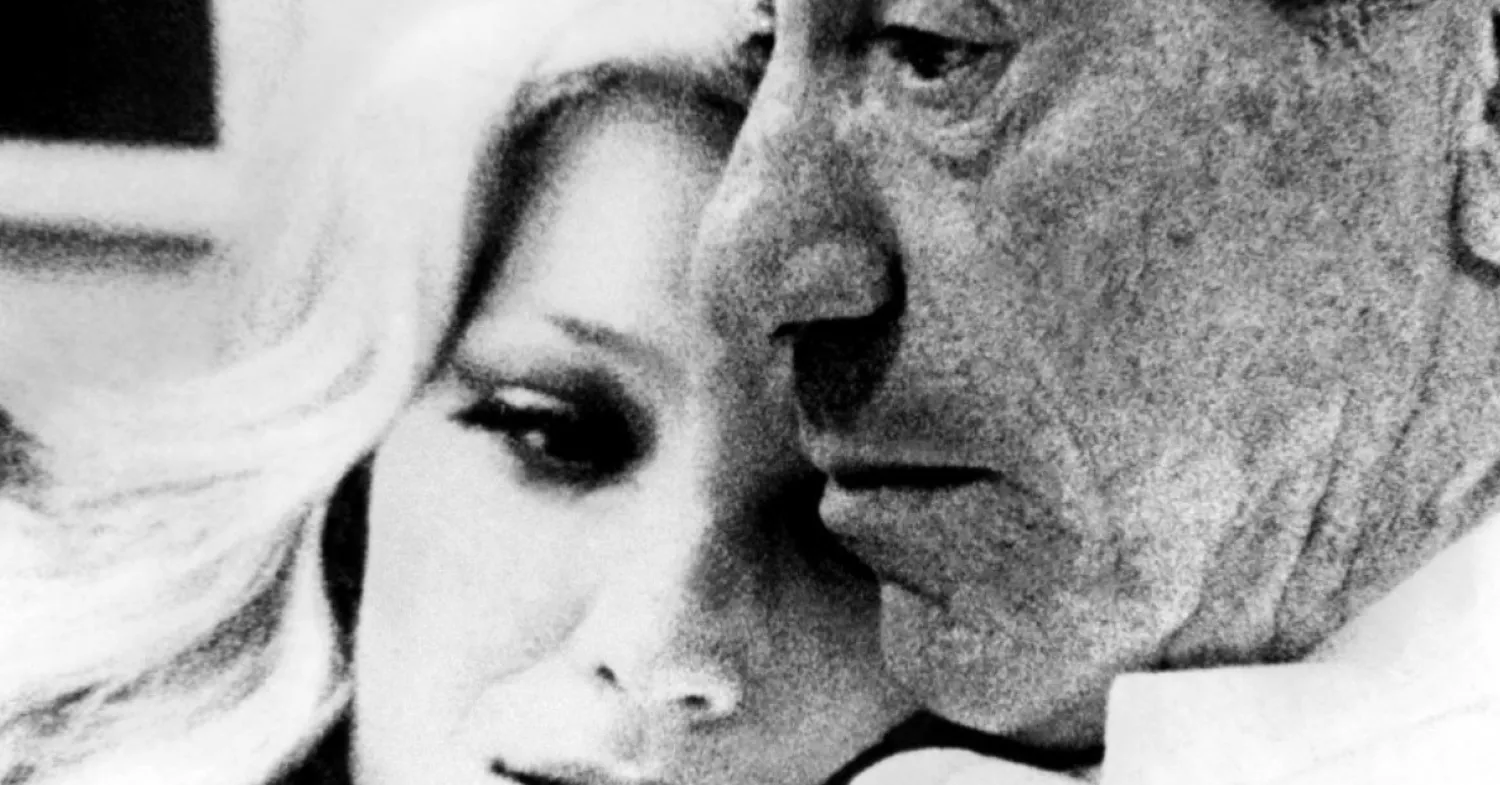Released in 1968, Faces (John Cassavetes) remains a remarkable achievement in independent, low budget filmmaking. It’s a movie that challenges viewers to confront uncomfortable truths about ourselves and our relationships.

John Cassavetes’ 1968 movie Faces is not for the faint of heart. It’s a raw, unflinching portrait of a marriage in meltdown, where the veneer of civility peels away to reveal the festering resentment and unspoken truths beneath two distant people. It’s a film that holds a mirror to human relationships in America, reflecting the messiness, selfishness, and the desperate grasping for connection that often defines wrong decisions.
The film takes place over a tumultuous 36-hour period, following Richard and Maria (John Marley and Lynn Carlin, respectively), a middle-aged couple whose comfortable façade crumbles when Richard abruptly announces his desire for a divorce. Shot in a gritty, cinema-verité style, the film throws us into the chaos of their unraveling lives. The camerawork is restless, the dialogue explosive, and the performances are brutally honest.
John Marley and Lynn Carlin give career-turning performances as the two lead characters. Marley captures the quiet desperation of a man lost in midlife crisis, while Carlin portrays the raw pain and rage of a woman betrayed. Their vulnerability and anger are laid bare, making their emotional turmoil palpable. They’re perhaps operating best when performing on screen together rather than relegated to separate plotlines, but their individual performances never waver from being authentic and engaging.
The emotional whirlwind at the heart of Faces wouldn’t exist without the combustible performances that ignite it. Gena Rowlands simmers as Jeannie, the catalyst for Richard’s midlife crisis. Initially presented as a glamorous foil to Maria’s earthiness and Richard’s life at home, Jeannie reveals a complex depth as the night progresses. Rowlands imbues her with a captivating confidence, a woman comfortable in her own skin, unapologetically enjoying her sexuality and independence. It’s a refreshing portrayal for a character of her profession in 1968, and Rowlands nails the balance between playful allure and raw vulnerability, sparking the dormant desires in Richard that ultimately threaten to shatter his marriage.
And while Rowlands ignites the flames, Fred Draper serves as the emotional conductor, channeling the volatility that simmers beneath the surface. His character, Freddie, is a manic whirlwind, unafraid to wear his emotions on his sleeve. Draper isn’t afraid to get messy, his laughter tipping into hysterics, his anger bordering on explosive. He becomes a lightning rod for others, amplifying their hidden resentments and anxieties, forcing them to confront the turmoil bubbling within. In Draper’s hands, Freddie isn’t simply a caricature; he’s a reflection of the raw, unfiltered emotions that often lie beneath the surface of civility.
These stellar performances elevate Faces beyond a mere chronicle of a failing marriage. The supporting cast becomes a mirror reflecting the messy emotional realities of their characters, and by extension, the audience. It’s a testament to John Cassavetes’ direction and the actors’ fearless commitment that these characters feel so achingly real, their breakdowns and epiphanies leaving viewers both unsettled and oddly cathartic. In Faces, there are no obvious good guys or bad guys, just flawed individuals desperately searching for connection in a world that often feels isolating and unforgiving.
The film’s first half is undeniably its more powerful half. Cassavetes builds tension masterfully, as Richard and Maria navigate the fallout of Richard’s brash decision, their conversations laced with venom and regret. We see them reach out to others for solace, only to further expose their vulnerabilities and deepen their emotional wounds.
However, the film loses some of its steam in the second half. The introduction of Seymour Cassel‘s flamboyant character, Chet, feels jarring and ultimately overplayed. While his presence is meant to reflect another perspective on relationships from a younger adult, his cartoonish performance clashes with the grounded realism of the rest of the film, and John Cassavetes’ interest in veering from sensationalism. It doesn’t negatively impact the film too much because Chet ultimately isn’t in the film that much, but he brings down what I think is the lesser of the two halves of the movie.
Despite this stumble, Faces remains a remarkable achievement in independent, low budget filmmaking. It’s a movie that challenges viewers to confront uncomfortable truths about ourselves and our relationships. It’s not always easy to watch, in fact much of the time it’s unflinchingly brutal and volatile, but its honesty and emotional rawness are undeniably powerful.
While not without its flaws, Faces is another landmark film by John Cassavetes. Its unapologetic portrayal of a dissolving marriage, paired with brilliant performances from John Marley and Lynn Carlin, and John Cassavetes’ signature improvisational style, continue to influence generations of new filmmakers.
Score: 8/10
Faces (1968)
- Cast: John Marley, Lynn Carlin, Gena Rowlands, Fred Draper, Seymour Cassel, Val Avery
- Director: John Cassavetes
- Genre: Drama
- Runtime: 130 minutes
- Rated: R
- Release Date: November 24, 1968
More Reviews for Movies Directed by John Cassavetes
Cinephile Corner has reviewed the following movies directed by John Cassavetes: